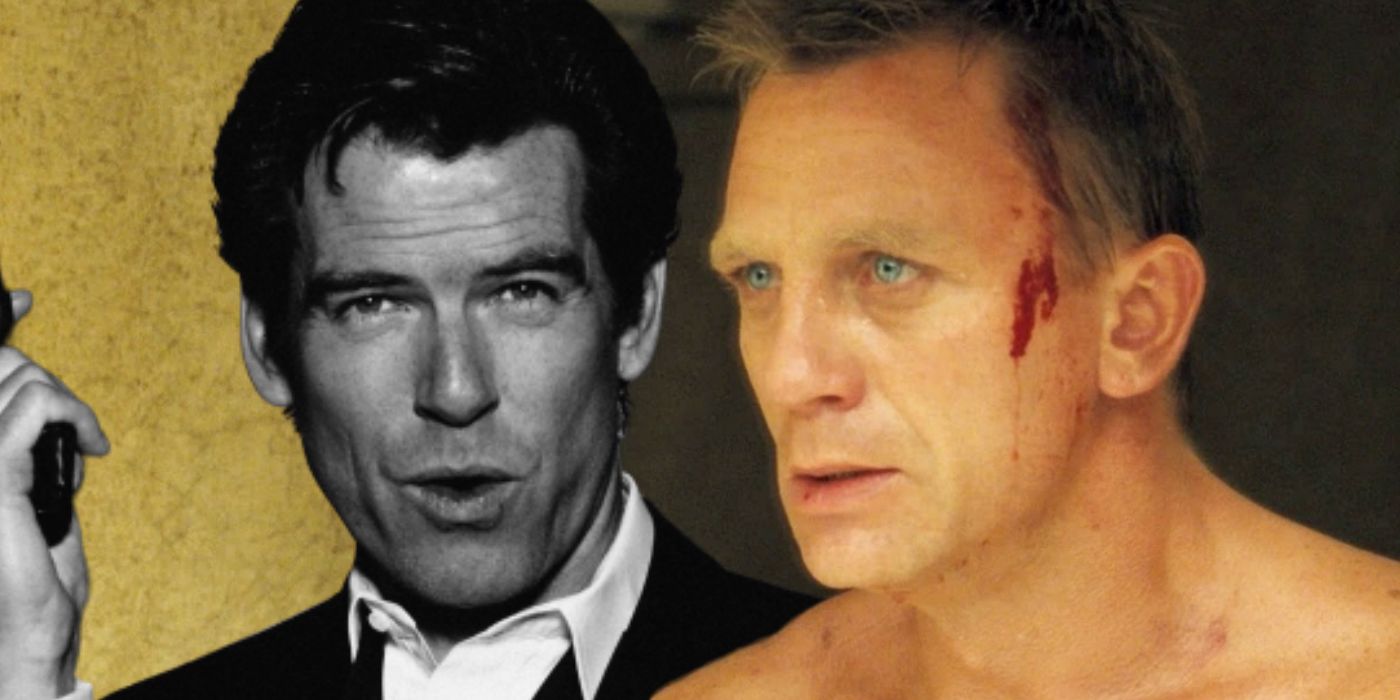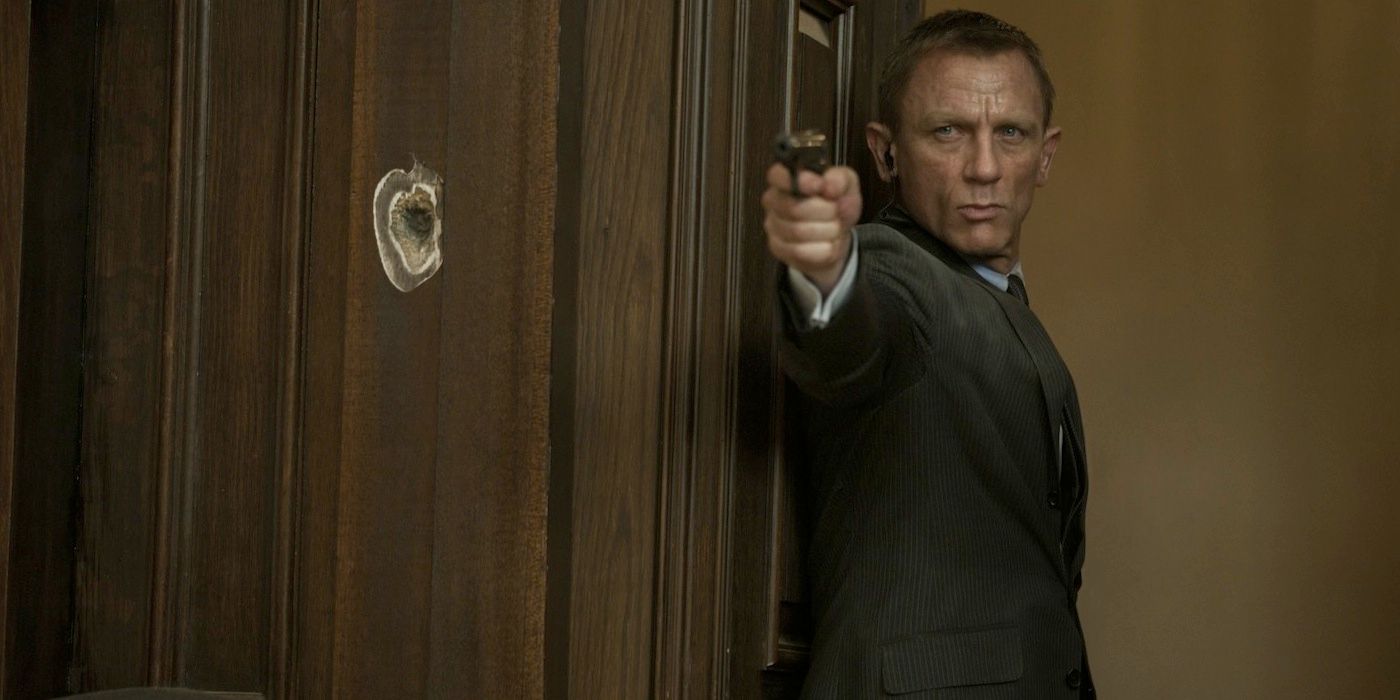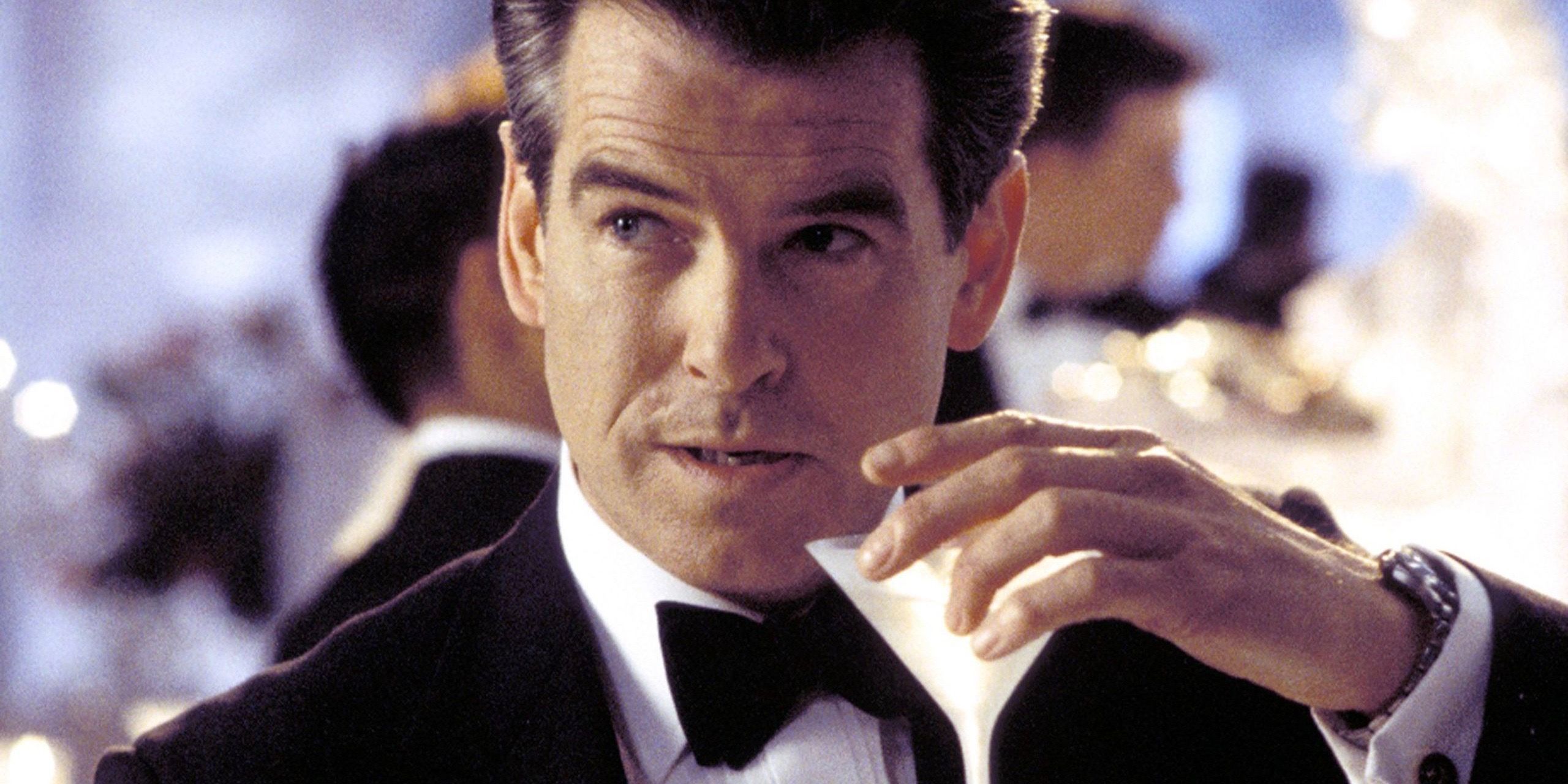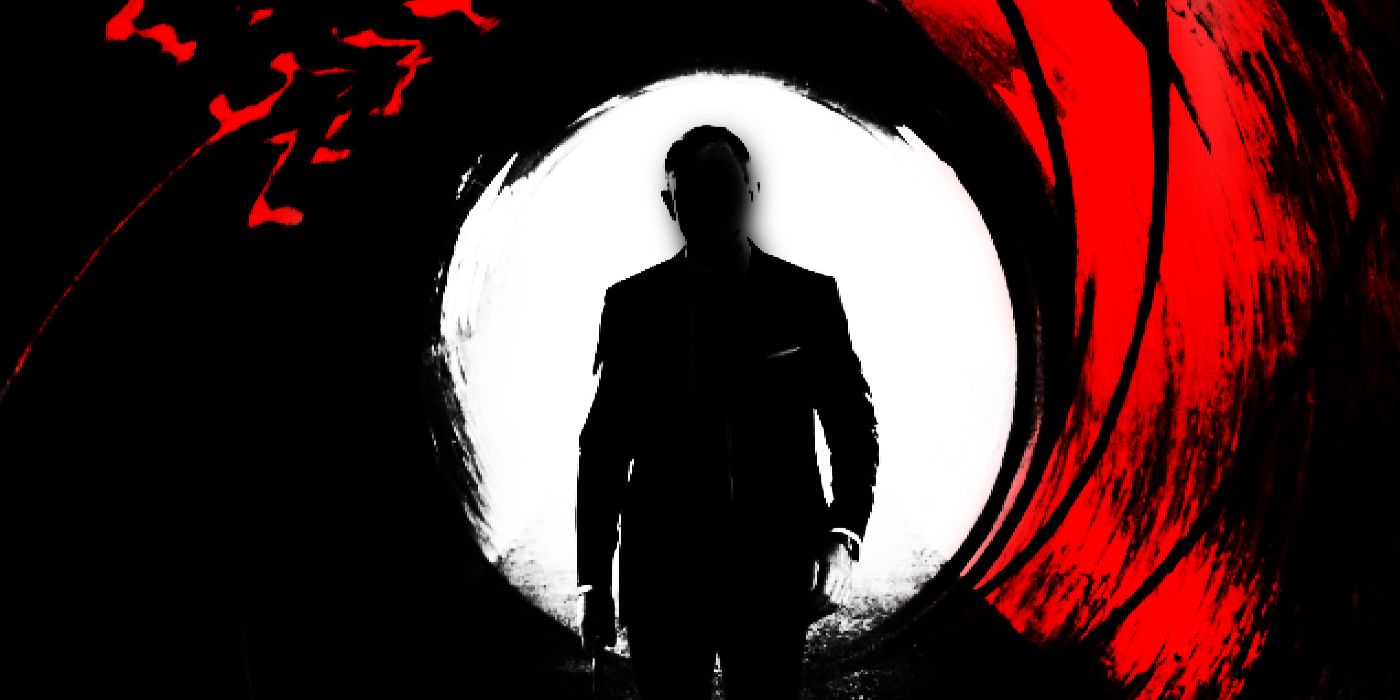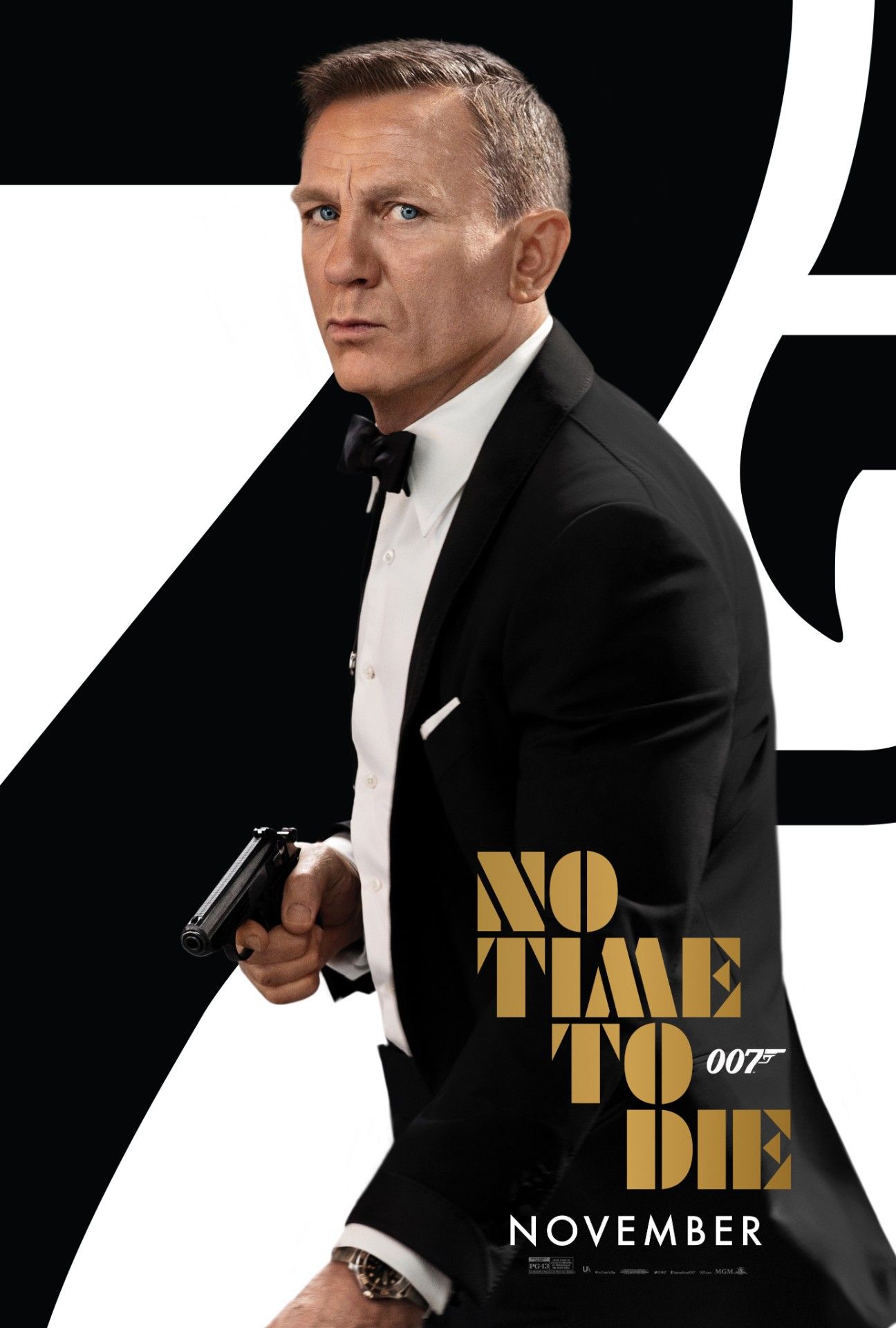Daniel Craig's James Bond movies modernized the secret agent's film saga and ushered in several changes that made the films better and more popular than ever. Craig is the 6th actor to portray Ian Fleming's gentleman spy in the longest-running and most successful movie franchise in history. He is also the longest-tenured 007, with his fifth and likely final Bond movie, No Time To Die, currently scheduled to release in November 2020.
Originally a controversial choice to play James Bond, Daniel Craig wowed audiences and critics with his debut as 007, 2006's Casino Royale. Director Martin Campbell (who also helmed 1995's GoldenEye starring Pierce Brosnan) rebooted the James Bond saga lock, stock, and barrel. Casino Royale completely severed ties with the previous Bond continuity that began with Sean Connery in 1962's Dr. No and ended with Brosnan's Die Another Day in 2002. Instead, Casino Royale served as a new origin story for Craig's younger, brash, and impulsive Bond who began as "a blunt instrument" before audiences watched him gradually mature into the refined and deadly 007 they love best. After Marc Forster's underwhelming Quantum of Solace in 2008 resolved lingering plot threads from Casino Royale, Academy Award-winner Sam Mendes became Bond's newest steward and took 007 to new heights.
Mendes 2012 blockbuster Skyfall was another soft reboot of Craig's James Bond that delved into his origins and reintroduced his classic tropes and supporting cast like Q (Ben Whishaw) and Eve Moneypenny (Naomie Harris). Skyfall also killed off the long-serving M played by Judi Dench and replaced her with a new minister played by Ralph Fiennes. Skyfall was a monstrous success and became the first James Bond movie to gross $1-billion at the box office while also thrilling fans and critics. Unfortunately, Mendes' 2015 follow-up, Spectre, wasn't on the same level and left both Bond fans and Craig himself hungry for redemption with the long-awaited 25th Bond movie, No Time To Die.
While Craig's Bond movies certainly have their share of flaws and shortcomings, with the odd-numbered films thus far being franchise highs and the even-numbered films coming in as relative disappointments, Daniel Craig's 007 ranks as arguably the most successful reinvention of an established film franchise ever. Thanks to the ingenious innovations of Craig's saga, James Bond has managed to remain in the pop culture zeitgeist in the 21st century and the character, who was invented after World War II and was once assessed as "a relic of the Cold War", remains incredibly popular and relevant.
How Daniel Craig's 007 Changed James Bond Movies
Craig's Bond movies are nothing less than a revolution for the franchise that re-established 007 as a force for good who defends Queen and country in the complex, geopolitical sphere of the 21st century. From minor but fundamental changes like Craig's agent never smoking cigarettes (which the franchise stopped decades prior) to massively improved special effects and violently visceral action and stunt work, the rebooted James Bond became a deadlier action hero than ever before. while still having a taste for his signature drink, the Vesper martini, shaken, not stirred.
When Casino Royale and Quantum of Solace hit theaters in the 2000s, Bond had solid competition with the Jason Bourne franchise; Matt Damon's international assassin action yarns featured hardcore violence that Craig's films had to match. Thus, James Bond became fitter, meaner, and a far better fighter as the films became relatively more grounded compared to the cartoonish 007 entries starring Roger Moore and Pierce Brosnan. Daniel Craig's Bond movies are action blockbusters of the highest order that continue to send 007 to exotic locales all over the world. In addition, the female characters of Craig's era are the most intelligent and complex in the franchise's history. Along with Eve Moneypenny, Eva Green's tragic Vesper Lynd and Lea Seydoux's Dr. Madeleine Swann rank high among the best Bond Girls ever.
Most importantly, the Craig 007 saga explored James Bond's humanity, his flaws, and the films allowed him to grow and change. Before Daniel Craig, different actors donned Bond's trademark tailored suits and tuxedos but the secret agent himself didn't change and was always smugly indomitable. But Craig's version of 007 evolved over time, fell in love, experienced heartbreak and betrayal, and he learned uncomfortable truths about his past and his very origins, including that his adoptive brother Hans Oberhauser was, in fact, the villainous Ernst Stavro Blofeld (Christoph Waltz), the leader of Spectre. Craig's Bond is the most human and relatable version of the gentleman spy and it's the welcome focus on James as a person and learning what makes him tick that is the true secret to the success of Daniel Craig's 007 era.
Bond Needed To Be Reformed After Pierce Brosnan's Era
After a promising start in the crowd-pleasing GoldenEye, Pierce Brosnan's four-film run as James Bond quickly degenerated thanks to bad screenplays that favored overblown cartoonish action and gimmicks like an invisible car over genuine thrills, and ear-splitting schoolyard double-entendres in lieu of flesh-and-blood characters and compelling dialogue. Though Brosnan himself embodies James Bond's best qualities, sadly, there was only so much he could do as the centerpiece of a film series that didn't take itself seriously. The full reboot of Daniel Craig's films was necessary to cleanly break from the excesses of the previous James Bond films and the sour taste they left in fans' mouths.
The Craig movies' ground-up reformation of James Bond also meant changing the very structure of the films to be one continuous episodic saga. Quantum of Solace's events happened immediately after the ending of Casino Royale and Skyfall killed M, the ramifications of which bled right into Spectre and determined Bond's course of action in that sequel. As shared universes became the norm thanks to the unmatched success of Marvel Studios' superhero movies, the Craig Bond saga responded by serializing itself, with Spectre retconning the previous films so that every villain and every tragedy James faced was the result of Blofeld and Spectre's manipulation. While turning Craig's films into one, long macro-narrative created issues, it was still a welcome change of pace that places the current cycle of 007 movies above where the Brosnan films left the franchise.
How Future James Bond Movies Can Be Even Better
Until No Time To Die is released, which should determine once and for all how well Daniel Craig's historic run as 007 will be defined, it's impossible to know what kind of ending his story will have or how well it will be received. Further, until a new actor is cast as James Bond and proves himself in the role, the future fortunes of the saga can't really be foretold. This is especially since so much about James Bond is woven into the actor wearing the tuxedo and how the films are designed around his strengths and his charms.
However, Daniel Craig's incredibly successful movies offer numerous lessons about what to do (and what not to do) in order to maintain the franchise's success and possibly even launch 007 to even greater heights. Audiences have shown they want to care about Bond and not just tag along on his glamorous and violent adventures. The characters who surround 007, especially the Bond Girls, also need to be complex and fascinating, and further exploration of James Bond's role in the ever-evolving global landscape will keep 007 relevant to audiences. Serializing the Bond movies should also start from the inception of the next cycle of films and there needs to be a master plan for the entire saga starring the next James Bond.
In Skyfall, the villainous Silva (Javier Bardem) presented himself to M with the ominous threat: "Think on your sins". This should be the eternal mantra for James Bond's producers and brain trust going forward as well. As long as the sins of the James Bond movies' past aren't repeated and the franchise keeps innovating while continually focusing on 007 as a character audiences can believe in and thrill to, the future for James Bond movies should remain bright.

